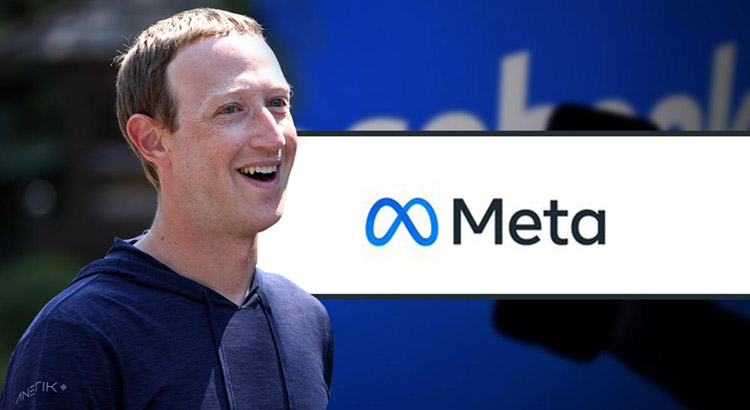Meta, the company behind Facebook and Instagram, is making a bold move by replacing its independent fact-checkers with a new system that puts the power of moderating posts in the hands of users.
Instead of relying on third-party experts to decide what`s true and what`s not, Meta is introducing a feature called "community notes," where users can comment on the accuracy of posts.
In a video released alongside a blog post on Tuesday, Mark Zuckerberg, Meta’s CEO, explained that the decision was made because third-party moderators were "too politically biased" and it was time to focus on "free expression."
This shift in approach comes at a time when Zuckerberg, along with other tech executives, is working to improve relations with US President-elect Donald Trump, ahead of his inauguration.
Trump, who has been highly critical of social media companies for censoring conservative voices, responded positively to the news, saying he was impressed by Zuckerberg’s decision.
Trump told reporters, "Meta has come a long way," and when asked if Zuckerberg’s move was a response to threats Trump had made to him in the past, the incoming US president simply said, "Probably."
Is Meta Giving In to Political Pressure?
Joel Kaplan, a key Republican figure and Meta’s new global affairs chief, praised the shift, writing that the reliance on independent fact-checkers was "well-intentioned" but had often led to censorship.
This change comes after years of criticism from Trump and his supporters, who have accused Meta of unfairly targeting conservative views.
However, the change has sparked a wave of concern among activists fighting against hate speech and online disinformation.
Ava Lee from Global Witness, an organization that aims to hold big tech companies accountable, called Zuckerberg`s announcement "a blatant attempt to cozy up to the incoming Trump administration."
She said that by claiming to avoid "censorship," Meta was simply avoiding responsibility for the harmful content that its platform can sometimes amplify.
Meta Takes a Page from X (Formerly Twitter)
Meta’s new community notes system is inspired by X (formerly Twitter), which introduced a similar feature after Elon Musk’s acquisition of the platform.
On X, users with different opinions can work together to add context to posts that may be misleading or controversial.
Zuckerberg, commenting on the change, said, “This is cool,” recognizing the similarity to X’s approach.
While Meta’s new system will allow users to moderate posts, the company assured that it would still handle content that encourages self-harm, suicide, or eating disorders the same way as before.
These types of harmful content will continue to be removed quickly, with no changes to the platform`s approach to dealing with sensitive topics.
Fact-checking organizations, such as Full Fact, which works with Facebook in Europe, have expressed disappointment over the change.
Chris Morris, the CEO of Full Fact, stated that the move was a "backwards step" that could have serious consequences globally, especially in the fight against fake news.
Too Much Censorship?
Meta has acknowledged that in the past, third-party fact-checkers have been too quick to censor content, sometimes blocking harmless posts and even suspending accounts that didn’t deserve it.
Joel Kaplan wrote that "too many people find themselves wrongly locked up in `Facebook jail.`"
The company now hopes that by letting users handle fact-checking, it can reduce unnecessary censorship and focus on providing a platform for free speech.
Zuckerberg also recognized the risks of this new system. He admitted in his video that the changes would mean "catching less bad stuff," but he believes it would reduce the number of innocent users whose posts are wrongly removed.
He described it as a "trade-off" and stressed that Meta was trying to strike a better balance between keeping the platform open for free speech while also protecting users from harmful content.
A Political Shift?
Meta’s decision to move away from third-party fact-checkers has raised eyebrows, especially in light of the company’s relationship with the Trump administration.
The company’s blog post stated that it was time to "undo the mission creep" and allow for more open speech, noting that it`s not right for something to be said freely on TV or in Congress but not on social media.
This decision was made just days before Trump`s inauguration, and Meta notified Trump’s team of the change before making the public announcement.
In addition, the company recently added Dana White, a close Trump ally and president of the UFC, to its board of directors, further signaling its shift in political direction.
Kate Klonick, an associate professor of law at St. John`s University, said that this change was part of a larger trend in the tech industry, especially after Elon Musk’s takeover of X.
She explained to BBC News that "the private governance of speech on these platforms has increasingly become a point of politics."
She added that this shift away from trust and safety measures represents a "radical swing back in the opposite direction."
What’s Next for Meta and Online Moderation?
As Meta continues to rethink its content moderation policies, the big question is whether this move will lead to a more open and free platform or whether it will fuel the spread of disinformation and harmful content.
For now, Meta is pushing forward with its community-driven approach, but its long-term impact remains to be seen.




-20260228080513.webp)

-20260224065127.webp)
-20260222063838.webp)



-20260305071113.webp)




-20260304091720.webp)






-20260303080739.webp)














-20260228064648.jpg)
